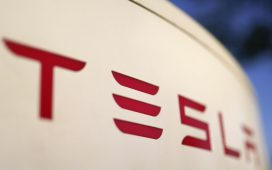It’s been a weekend of blockbuster, potentially destructive tech deals where successful businesses face being ripped apart.
Arm‘s position as the Switzerland of semiconductors — its core designs are used by almost everyone in the industry — is in serious jeopardy with SoftBank agreeing to sell it to Nvidia for $40bn. Whatever assurances are given about its continued neutrality, Nvidia’s many competitors will begin to look for alternatives and governments and regulators are likely to take a dim view of the competition implications. While Nvidia is playing up how it will extend its AI expertise to all devices through Arm and analysts are predicting a threat to Intel and its own architecture, these will be moot points if the biggest-ever deal for the chip industry proves to be a non-starter, as it is reviewed by the UK, US, China and EU over the coming months.
ByteDance‘s attempt to hive off its hugely popular TikTok video app to appease the Trump administration is getting equally messy. Microsoft said on Sunday its bid had been rejected. Walmart, which had been working with Microsoft, said on Monday it was still interested in taking a stake. It appears that Oracle has reached a preliminary “technical partnership” agreement for TikTok’s US operations that does not include a full sale. This would help its cloud business and avoid new Chinese restrictions over the export of TikTok’s “secret sauce” algorithms, but it hardly meets President Trump’s demands for a sale . . . and a piece of the action.
Alex Stamos, former chief security officer at Facebook, wrote on Twitter: “A deal where Oracle takes over hosting without source code and significant operational changes would not address any of the legitimate concerns about TikTok, and the White House accepting such a deal would demonstrate that this exercise was pure grift.”
Steven Mnuchin, US Treasury secretary, said on Monday that the Committee on Foreign Investment — an inter-agency panel in the US that can block deals on national security grounds — would review Oracle’s deal this week and decide if it protected the private data of Americans who use the app.
The Internet of (Five) Things
1. SoftBank may take itself private
SoftBank is a bit of a shape-shifter. After surprising us with its hedge fund punts on US tech stocks, its executives have now revived discussions about it going from being a publicly listed to a private company. The talks are said to be driven by frustrations over the persistent discount in the Japanese conglomerate’s $115bn equity valuation compared with the value of its individual holdings.
2. Google puts a fire under carbon-free moves
Alphabet chief Sundar Pichai pointed to the US west coast’s wildfires as illustrating the need for urgent action on climate change, as he announced all Google data centres and campuses would run on carbon-free energy within a decade.
3. Huawei tries to keep app makers onside
Huawei has a big ask for its developers: carry on making apps for our devices, despite not knowing how much longer we will be able to make smartphones. After its annual developer conference, we look at how a company that almost grabbed the top spot for global smartphone vendor earlier this year could have no phones to ship by the second half of 2021.

4. Amazon nears 1m workers
Amazon is hiring another 100,000 workers in the US and Canada, in its fourth such recruitment spree this year as demand surges due to the pandemic. It is rolling out 100 new warehouse and operations sites this month and a headcount of 876,000 worldwide at the end of June will now be boosted to nearly 1m.
5. Nikola admits to truck roll
Nikola relied on its suppliers’ technology in early models and used a truck rolling downhill in a marketing video, the company has admitted, in a lengthy defence of the truck start-up’s business plan in the face of a short seller’s report. Its shares are up more than 10 per cent today on its response, after losing 40 per cent of their value last week.
Tech week ahead
It’s a big week for US tech IPOs, with Snowflake, the cloud software business, raising $2.2bn, and Unity, a video game software company, raising $950m. Sumo Logic, another data software platform, will raise $281m

Monday: The hearing begins for Uber’s appeal against Transport for London’s (TfL) refusal to renew its operating licence, with a decision expected in a week’s time. Huawei will stop receiving shipments from the majority of its suppliers, including longtime chip partner Taiwan Semiconductor Manufacturing Co, after midnight.
Tuesday: Apple is expected to introduce a new Apple Watch at its “Time Flies” event at 10am Pacific time. Adobe reports on its August quarter after the US market close. Analysts expect revenue of $3.16bn, up 11 per cent, and earnings per share of $2.41, up 50 per cent.
Wednesday: First day of trading for Snowflake.
Thursday: A group of US WeChat users will request a preliminary injunction in San Francisco to block the Trump administration’s ban on US transactions with the Chinese messaging app, which goes into effect on Sunday.
Friday: First day of trading for Unity.
Tech tools — Fairphone 3+
Phone launches from Fairphone are neither frequent nor flashy. That’s not the idea. Instead of announcing a new model last month that makes its predecessor obsolete, the sustainable smartphone company launched improvements for the existing phone on its modular basis, so existing users can just upgrade the bits they want. The complete Fairphone 3+ is made with 40 per cent post-consumer recycled plastics — a big jump from the 9 per cent for the Fairphone 3. A new camera module offers a rear camera that has a 48-megapixel sensor rather than a 12-megapixel one, while the selfie camera has gone from 8 megapixels to 16 megapixels. The 3+ is available from today at £425 (€469).









